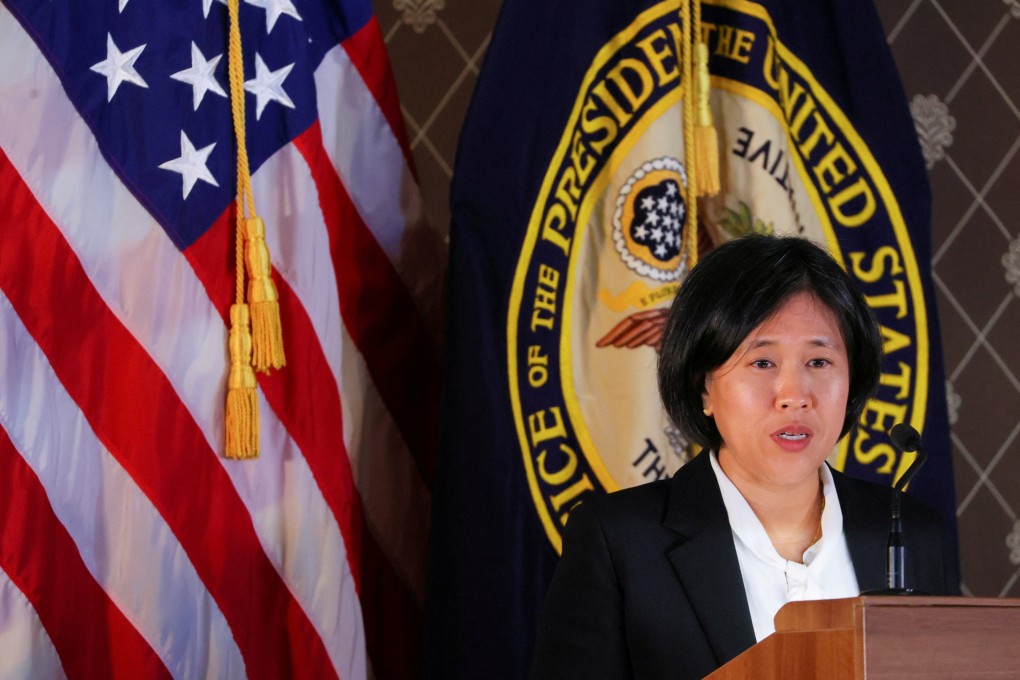Advertisement
US-China trade: ‘building a wall’ will not address ‘problems posed by China’, Washington warns
- Biden administration’s first assessment of China’s compliance with the World Trade Organization says Beijing’s actions ‘cause serious harm to workers and businesses around the world’
- New trade report also says China ‘plainly does not hold the same core values’ that the US and its closest allies hold
Reading Time:3 minutes
Why you can trust SCMP
38

The United States is looking to avoid “building a wall” between itself and China on trade, as doing so would adversely affect American interests. But at the same time, Washington aims to maintain a “technological edge” over its strategic rival.
The fresh comments came on Wednesday in the US Trade Representative Office’s latest annual review of China’s compliance with the World Trade Organization (WTO) – the first such assessment under President Joe Biden’s administration.
US Trade Representative (USTR) Katherine Tai also urged China to live up to its commitments in the phase-one trade deal, as doing so would “provide a solid foundation for future bilateral engagement”.
Advertisement
And in a break from last year’s assessment by the previous administration of Donald Trump, the latest report dropped any mention of a separate “phase two” trade negotiation with China, but said that “an initial step” of the US’ strategic approach involves addressing the unresolved issues under the phase-one trade deal, although the purchasing commitments expired at the end of 2021.
China had vowed to buy an additional US$200 billion worth of American goods over 2017 levels, but a report released by the Peterson Institute for International Economics last week said China purchased only 57 per cent of the US exports it had committed to buy under the two-year agreement, which was “not even enough to reach its import levels from before the trade war”.
Advertisement
Advertisement
Select Voice
Select Speed
1.00x